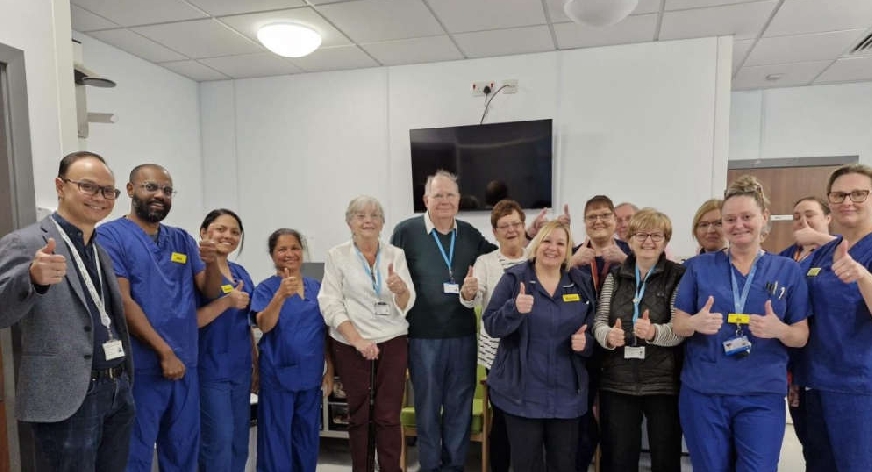
Recent data from the UK Obstetric Surveillance Service showed the majority of pregnant women hospitalised with Coronavirus have not been vaccinated.
Health, pregnancy and fertility experts in Leicester, Leicestershire, and Rutland (LLR) are urging all; pregnant women; women who are hoping to become pregnant and new mums who have yet to have either their first or second dose of the Covid-19 vaccinations to come forward and get vaccinated.
Nationally, since May 2021, just three women had been admitted into hospital after having their first vaccine. In contrast, almost all (98%) pregnant women admitted to hospital with Covid-19 had not been vaccinated. This has highlighted a desperate need for all pregnant women, new mums and those hoping to become pregnant to get vaccinated to help minimise the risk of contracting the virus.
In a bid to raise awareness locally and reduce Covid rates in pregnancy and in new mums across LLR local experts have filmed a short video which answers the most frequently asked questions about pregnancy and vaccines.
Caroline Trevithick, Executive Director of Nursing, Quality and Performance at the Leicester, Leicestershire, and Rutland CCGs, said: “The virus is still a very real concern and can be devasting to pregnant women and their babies.
"We want local mums and young families to know that by having both Covid-19 vaccinations they are giving themselves the best protection from becoming seriously ill and suffering potentially serious complications. It is however imperative that both doses are taken to provide maximum protection.
“Studies have shown that having the Covid-19 vaccination during pregnancy has proven to be safe for both mums and their babies. By getting fully vaccinated during pregnancy will mean that antibodies are passed to the baby helping to them to build some immunity to the virus."
As part of this campaign, it’s being made easier for women, their midwives and health visitors to have conversations about the vaccine and any concerns they may have. Incentives such as information being made more accessible in antenatal clinics waiting rooms, online and by stickers being placed on maternity books and red books to prompt discussion about the vaccine with health professionals at their routine appointments.


 Airport celebrates 60th anniversary
Airport celebrates 60th anniversary
 Serious collision between a car and cyclist near a Nuneaton business park
Serious collision between a car and cyclist near a Nuneaton business park
 People treated for smoke inhalation after fire in Nuneaton
People treated for smoke inhalation after fire in Nuneaton
 Thousands of pounds worth of equipment donated to George Eliot Hospital
Thousands of pounds worth of equipment donated to George Eliot Hospital
 Appeal as man has extensive leg injuries after collision in Bedworth
Appeal as man has extensive leg injuries after collision in Bedworth
 Family of man killed on M1 pay tribute to ‘beloved dad, stepdad, partner, son, grandson and brother’
Family of man killed on M1 pay tribute to ‘beloved dad, stepdad, partner, son, grandson and brother’







